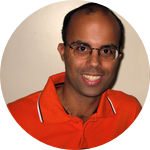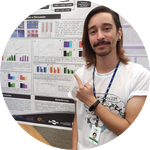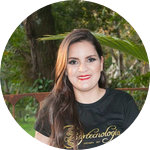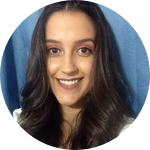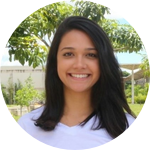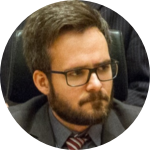About This Project
A dynamic digital educational platform on nanoscience and nanotechnology, its applications and benefits will be used to evaluate acceptance and differences in the understanding of the subject in schools from different countries. The platform adopts pedagogic methods and digital tools, aiming on the construction of a multidisciplinary knowledge and offering an extracurricular activity as an incentive to multidisciplinarity in scientific disciplines.
Ask the Scientists
Join The DiscussionWhat is the context of this research?
Emerging countries lack of support for research restricting, therefore, knowledge to small parts of societies. Democratizing science to develop innovative solutions may promote a transformative education in a larger scale. A digital platform in nanoscience and nanotechnology as an extracurricular activity would be an opportunity for teachers responsible for scientific disciplines to associate basic contents of chemistry, physics and biology in a playful and constructive way. Thus, evaluating its acceptance and usefulness in learning the subject in different societies is crucial.
What is the significance of this project?
The project relates the educational methodology developed in an emerging country to deliver a currently restricted scientific knowledge to communities where knowledge can be transformative, circumventing social and physical barriers. Taking Brazil as an example, despite the notable recent growth in accessibility to the internet through wireless networks in public schools, investments in research and development have been cut and generated a devaluation of the scientific career, which ends up discouraging important vocations in students. An open access digital platform on nanoscience and nanotechnology could encourage students to learn science in a different and engaging way, in order to stimulate the profile of scientist in students.
What are the goals of the project?
We aim to stimulate the scientific curiosity in young people in a different way, using an exciting platform that promote an opportunity for less-affluent communities to learn about cutting-edge technology and to develop applications in their own routines and environments. We will study if there is differences in the understanding of the students related to nanobiotechnology after they interact with the plataform and, also, we will test whether the proposed digital activity will be more widely accepted in public or private schools in different countries.
Budget
The digital platform will be developed by specialized professionals and will contain several functionalities. It will assist in understanding basic and complex issues related to nanotechnology and nanoscience in an interactive, multidisciplinary and dynamic way. We propose to make the learning process more attractive and simple. In order to maintain the website, it is necessary to pay a monthly fee, relative to domain. The website will be publicized by the Nanobiotec Group in several public and private schools from distinct countries. Your contribution will help consolidate the idea of disseminating science among young people.
Endorsed by
 Project Timeline
Project Timeline
This project will developed a tool that allows and facilitates the dissemination of knowledge about nanoscience and nanotechnology to students that is not expected to have an easy access to this type of information.
Jun 01, 2018
Project Launched
Jul 16, 2018
End of campaign
Aug 06, 2018
Design and development of the platform
Sep 10, 2018
Completion of platform development and testing
Nov 02, 2018
Platform disclosure
Meet the Team
Affiliates
Lucio de Assis Araujo Neto
He is currently Master and PhD student of the Pharmaceutical Sciences program at the Federal University of Paraná (UFPR) and graduated in Biotechnology at the University of Brasília (UnB). Today, he is developing his project to build biopolymer fibers, based on a carbohydrate associated with a protein, to direct cell differentiation by physical stimuli. In addition, there are also interests in the area of 3D bioprinting using cellular spheroids constructed from the addition of biocompatible magnetic fields induced by neodymium magnet magnetic fields. Along with his current orientation at the Nanobiotechnology Laboratory, he worked on the synthesis of magnetic iron oxide nanoparticles for the development of three-dimensional cell culture in different cell types and living organisms using neodymium magnets. He has three years of experience as part of the Molecular Pathology of Cancer (PMC) Group, where he has worked with bioprospecting and cytotoxic activity of compounds derived from anacardic acid, cardol and cardol in human squamous cancer cells. In addition to these, it stands out for its participation in more than 15 scientific events, making oral presentations and postings. It is also implicated in its four awards in 1st place for works developed at UnB, UFPR and Embrapa Genetic Resources and Biotechnology.
Thalita Fonseca
Graduated in Biotechnology from the Federal University of Pampa (2017), she is currently a master's student in the Nanoscience and Nanobiotechnology program at the University of Brasília, and is oriented by Dr. Luciano Paulino da Silva, acting in projects related with the application of nanomaterials in 3D bioprinting.
Heloíse Maitê
Currently, is a undergraduate in the University of Brasilia (UnB) and works at Laboratory of Nanobiotechnology in Embrapa Genetics Resources and Biotechnology.
Júlia Moreira Pupe
Currently, Julia is studying for a master's degree in Molecular Biology at the University of Brasilia (UnB) and works at Laboratory of Nanobiotechnology in Embrapa Genetics Resources and Biotechnology.
Rodrigo Meneses de Barros
Rodrigo M. Barros, born in Brasília, Brazil, is studying for a PhD in Nanoscience and Nanobiotechnology at the University of Brasília (UnB). He holds a master's degree in Medical Sciences (UnB), Postgraduate in Forensic Identification and graduated in Biological Sciences. He has experience as a professor at the National Secretariat of Public Security (SENASP) and private educational institutions.
Project Backers
- 6Backers
- 17%Funded
- $201Total Donations
- $33.50Average Donation
